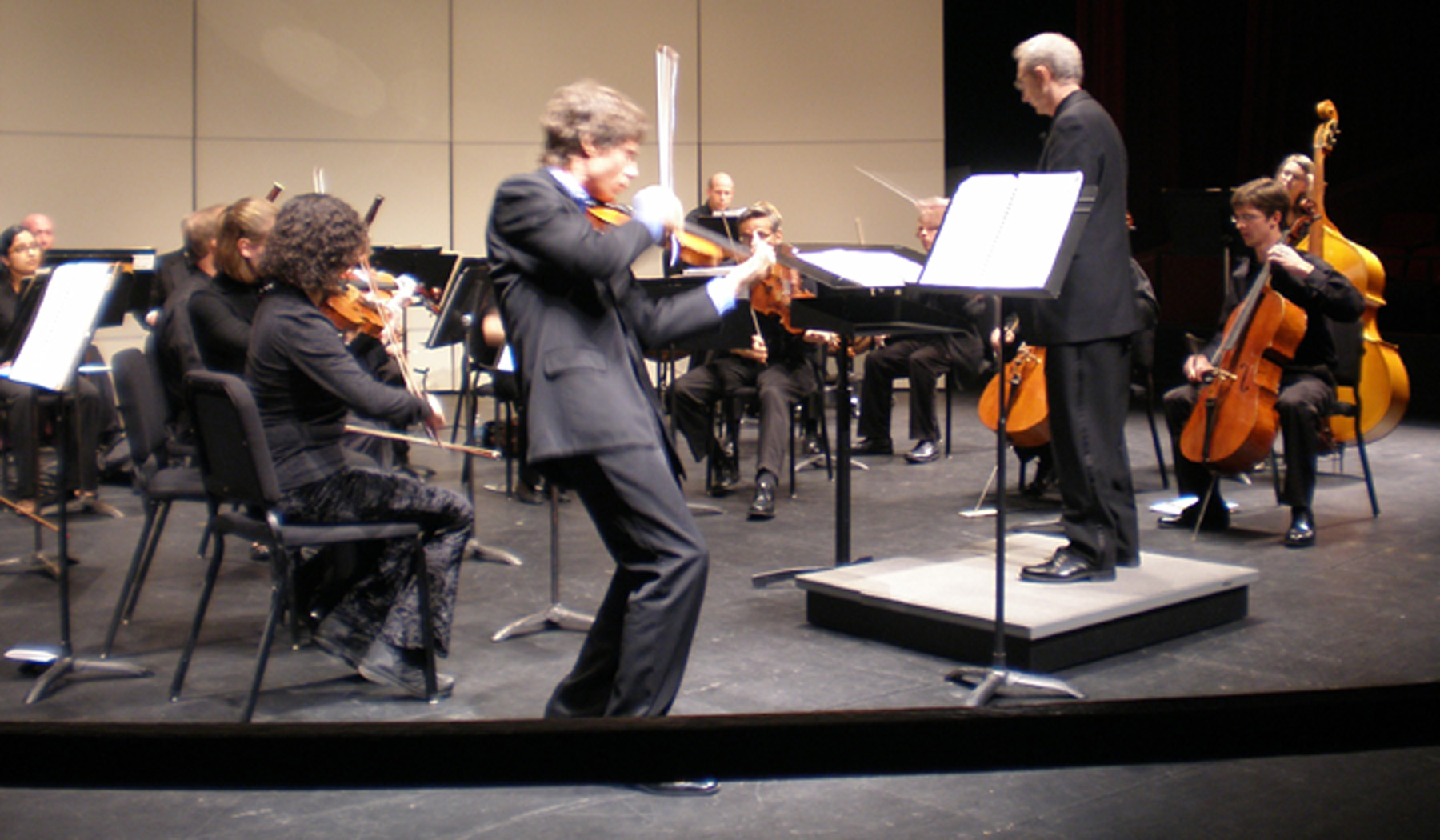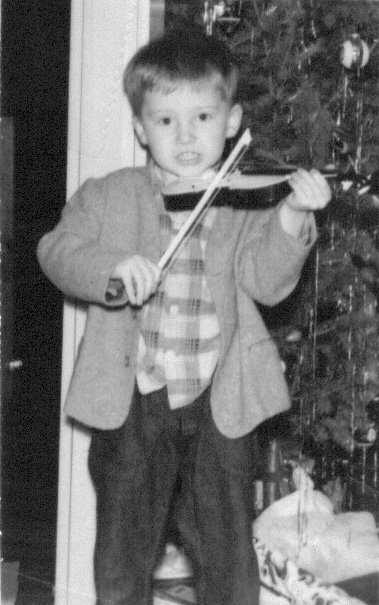





Full
Score
(PDF)
Cover
Orchestral
Parts
Solo
Violin Part (PDF) Violin
and Piano Score
I. Om Namo Bhagavate Vasudevaya
With Centered Atttention [6:18]
II. Theme and 6 Variations [10']
III. Transfigured Ho Dao
Review of premier performance from CVNC
(I've included a Christmas photograph here of me at age about 4, with a toy plasic violin, in Denton, Texas.)
As a youngster, before starting violin lessons, I would go to
the basement, get a dowel, and saw it across my arm pretending
to play a new violin concerto. Many years later, it has remained
a dream to create one; but no longer able to play myself due to
arthritis and poor hearing, a practical opportunity eluded me.
However I now am collaborating with Ananda-Eric Pritchard, and
so the natural thing seems to be—write him a concerto! There is
also a piano reduction of the orchestral parts suitable for
performance.
From 1980 through 1982 I composed the Goldbug
Variations, at first for two pianos and then arranged for
full orchestra, and also for five synthesizers. It was too long,
difficult, and a touch immature; the piano version had one
performance for an audience of 25 in 1982. Drastically edited
and re-written, it forms the basis for the second movement of
this concerto. In early 2013, I dropped the first two variations
and added one at the end, adapted from a new set of Goldbug
Variations composed for harpsichord. This, along with a
small change to the first movement, makes this third edition.
This concerto includes four horns, two tenor trombones
and a bass trombone. The first performance, by the Raleigh Civic
Chamber Orchestra under Randall Foy and with Eric as soloist, in 2009,
required reduction of forces to two horns and bass trombone,
hence there is also a chamber orchestra arrangement. This was of the first edition.
About the various exotic terms in this score; “Ananda” is
a Sanskrit word roughly meaning “bliss”, and is Eric’s spiritual
name. The first movement’s title is a Hindu mantra frequently
used by devotees of Krishna, and translates as “homage to the
blessed son of Vasudeva”. The last movement is an expansion of
the one-minute finale of the 11th Sonata for Solo
Violin, first performed by Eric, which originally was in a set
of 64 movements from 1979 related to the changes of the I Ching. Hence the Taoist pun on “hoe-down”, and
the Transfiguration from its former version. The deep inner
meaning of “Hayseedic” is best left for others to elucidate.
Naturally enough, this work is dedicated to Ananda-Eric Pritchard in deep appreciation for his friendship and high degree of dedication to musical and spiritual ideals. The solo violin in the score has his bowings, while the solo extracted part has his bow directions and fingerings.
I encourage amplification of the solo violin where needed.
Dr. Randolph
Foy, was Director
of Orchestral Activities, NC State University. He holds degrees
from Oberlin Conservatory of Music, the University of Iowa
(organ) and a doctorate (conducting) from Peabody Institute of
Johns Hopkins University, Baltimore. His teachers included
David Boe and Fenner Douglass (organ) and Frederick Prausnitz
(conducting), and John Spitzer (musicology; dissertation
“Textural Transformations: The Instrumental Music of Krzysztof
Penderecki, 1960-73”).
He conducted in the
Baltimore/Washington area, and taught at the University of
Richmond, NC School of Science and Mathematics (founding
faculty) and NC School of the Arts. In addition to his teaching
and administrative duties as Associate Director of the
Department of Music, NC State, Foy conducted and taught at the
Governor's School of NC in Winston-Salem, a summer program for
gifted high school students.